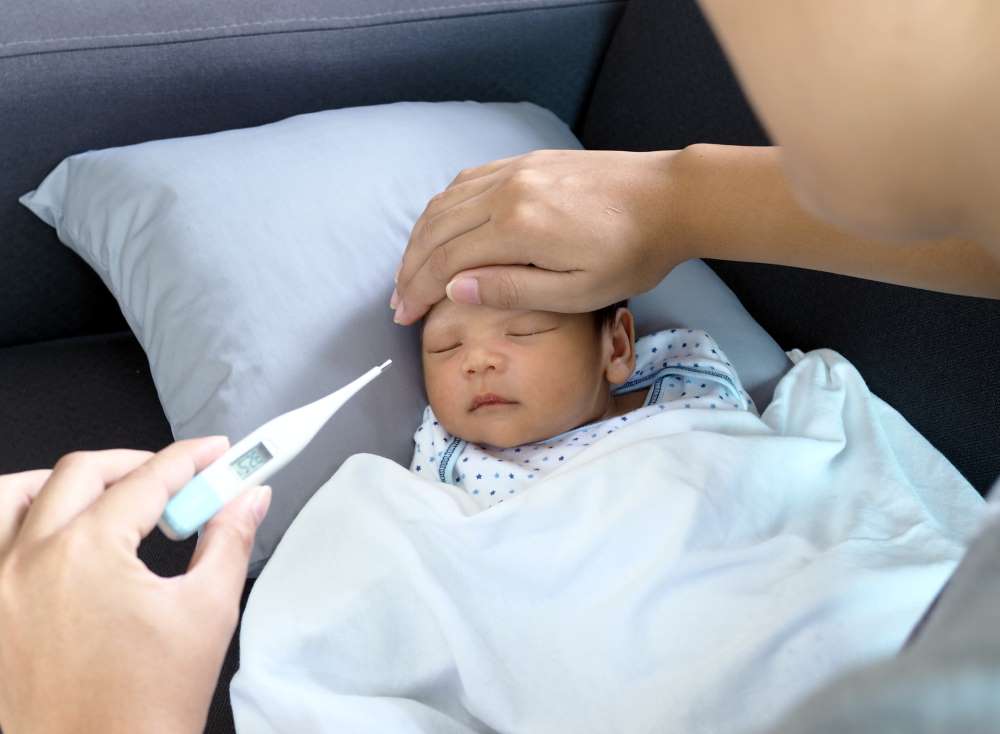
Bringing your newborn baby home can be the most special and extraordinary thing, but it can also be very daunting. This tiny little human is now fully dependent on you for everything and anything they need. There is a lot for new parents to consider, learn, and do their best to be aware of.
Your newborn baby is going through so many different changes in a very short amount of time, physically, mentally, emotionally, and intellectually growing every day. It takes full-time attention to monitor these changes, and you need to be switched on to notice any changes that seem abnormal or worrying. Some can be brought on naturally or by a change you're making, such as switching from breastfeeding to bottle-feeding. Even when choosing a trusted formula such as Alula, your baby can still have a reaction.
Signs of health issues
First things first, it's important to know what these changes or signs are of any possible health problems. Not all sicknesses in newborns are fatal, but it's a very crucial time for them health-wise. Roughly two-thirds of newborn passings can be prevented if known and effective health measures are provided. In order to do this, you must be able aware of the signs your baby might be sick. (1)
Signs can be:
-
Not urinating.
-
No bowel movement for 48 hours.
-
Breathing fast, you can check if the speed is too fast by timing how many breaths your baby is taking. Anything over 60 breaths per minute is probably too much. (2)
-
Blueish skin as a result of irregular breathing. Newborns usually do have different breathing patterns, so you should count for a full minute. Any pauses longer than 20 seconds between breaths are considered bad and can be a sign of apnea. (2)
-
Severe retraction of the ribs when taking a breath.
-
Whistling, wheezing, or grunting sounds while breathing.
-
Bleeding, drainage, or any strange odor from the umbilical cord.
-
Yellowing or, in some cases, progressively worse yellowing (jaundice) of the skin. This can be all over the baby's body and even the whites of the eyes.
-
Irritability or incessant crying that doesn't get better when the baby is comforted or cuddled could be a sign of a cold or a virus or something worse.
-
A baby that's very sleepy and struggles to be awakened to bottle feed or nurse. If your baby is struggling to feed in general, this is a strong indicator that something might be wrong as babies usually want to eat a lot. Always go off your baby's initial eating patterns, though. If there's an abrupt change, call your doctor.
-
Usual signs of sickness such as coughing, pale skin, diarrhea, etc.
-
Weak sucking ability or poor appetite.
-
Yellow or greenish vomit.
It's important to remember that all children are different. As a new parent, you should trust your understanding of your baby and call their healthcare provider if you see signs that are troublesome to you.
Fever and children
One big indicator that a Newborn baby is possibly sick is if they're running a fever. Fever in kids is a sign that their little body is probably fighting off some form of infection. However, a persistent and high fever above 101 degrees in newborns can actually lead to seizures and even brain damage if not treated timely and correctly. If your child has a high fever, make sure you take them to a doctor and get the necessary medication.
It's crucial to know how to take your baby's temperature too for their safety as well as accuracy. It's recommended to use a digital thermometer and not a mercury one. For infants and toddlers, make sure you use a rectal thermometer correctly; not using this right can lead to accidentally poking a hole in the perforate/rectum. It can also pass on germs from the stool.
If you're altogether uncomfortable taking a rectal temperature, you should use another method. Remember when you speak with your child's healthcare provider to tell them which method you used to take your baby's temperature.
There are other ways you can determine your child's temperature, such as through ear checks and oral checks. The problem with these is that ear temperatures aren't accurate until the baby is six months old, and oral temperature shouldn't be used on your child until they are at least four years old. Other options are forehead checks or taking temperature from their armpits.
You should speak to your baby's healthcare provider for temperature guidelines.
Takeaways
It's important to know the signs of possible health issues in your newborn baby as they are solely reliant on you and your care. It's equally necessary not to panic in any situation but instead follow your intuition and consult your child's healthcare professional whenever you're worried or unsure.



























